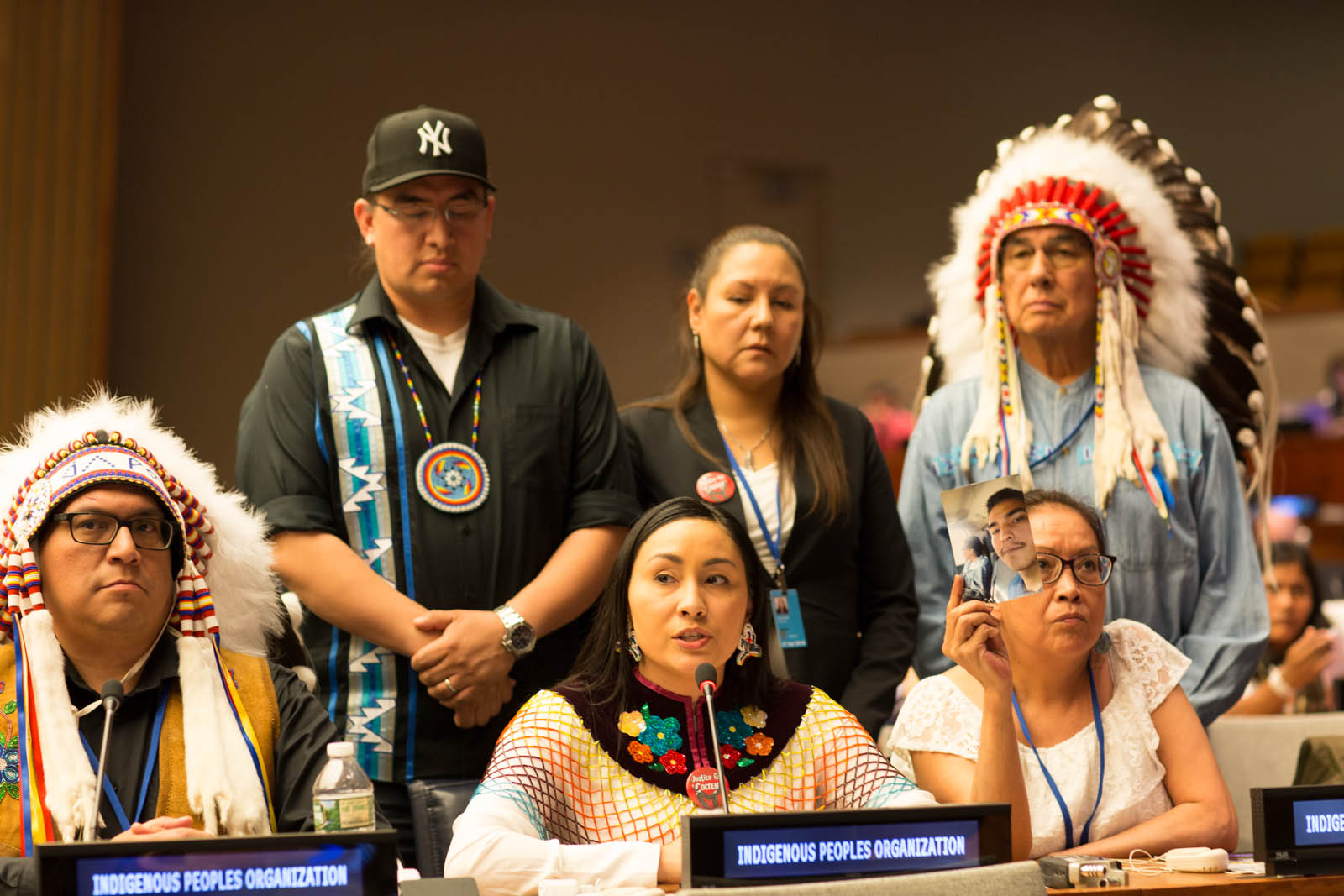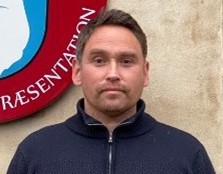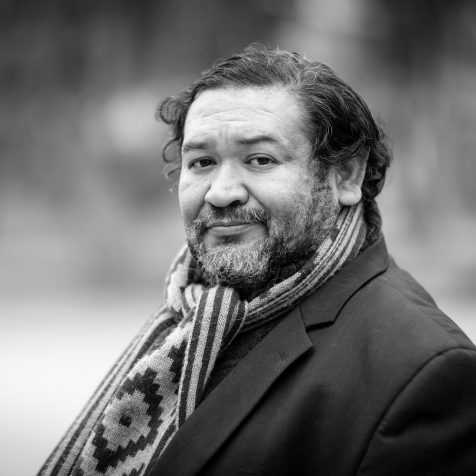
Every year, the Indigenous Peoples and Development Branch within the Division for Inclusive Social Development of the Department of Economic and Social Affairs organizes an international expert group meeting (EGM) on a theme recommended by the Permanent Forum on Indigenous Issues and endorsed by the Economic and Social Council (ECOSOC).
The Permanent Forum at its 2022 session recommended the theme of the Expert Group Meeting (EGM), “Truth, transitional justice and reconciliation processes” which will take place from 15-17 November 2022.
Venue: ECLAC Headquarters, Santiago, Chile.
EGM Report (E/C.19/2023/3)
Registration
Registration is now closed.
Participation:
Participation was open as observers for Indigenous Peoples, United Nations agencies, programmes and funds, Member States, non-governmental organizations with ECOSOC status and academics.
Working Languages:
The working languages were English and Spanish.
Concept Note
Objectives of the Meeting
The aim of the expert group meeting was to build on the recommendations and policy advances and identify the barriers and gaps by:
- Documenting United Nations mechanisms/bodies or others that support national efforts to address conflicts, implementation of peace processes and accords, truth, transitional justice and reconciliation processes.
- Identifying key considerations based on good practices when establishing truth, transitional justice, and reconciliation processes to include Indigenous Peoples and uphold their rights, taking into account the vulnerabilities of Indigenous women and children.
- Assessing structural/ institutional barriers that prevent the participation of Indigenous Peoples in conflict prevention, conflict resolution, peace-making and peacebuilding processes.
- Identifying Indigenous-led consultation protocols/legislative initiatives toward achieving consensus on implementing peace processes and accords.
- Preparing policy recommendations for all relevant stakeholders.
The final report and recommendations of the expert group meeting was submitted to the Permanent Forum on Indigenous Issues at its April 2023 session.
Proposed Themes for Discussion
Four major themes of discussion that guide the agenda are proposed as follows. Under each of the themes are some preliminary questions that have been identified for consideration and to stimulate discussion.
Theme 1: Truth, transitional justice, conflict resolution and reconciliation: International law the United Nations system:
- Which Indigenous customary laws and legal traditions need to be better integrated in transitional justice processes?
- How can the UN Declaration on the Rights of Indigenous Peoples and other UN principles and guidelines be incorporated into conflict resolution and peace and reconciliation processes?
- What support could the UN provide to Indigenous Peoples in negotiating peace accords, or other peacemaking processes?
- are existing guidelines and protocols guiding transitional justice and peacebuilding exercises utilized by practitioners, and if so, would specific guidelines for Indigenous Peoples be useful?
- How is the UN system working in this area including Indigenous Peoples?
Theme 2: Barriers preventing Indigenous Peoples’ participation:
- How have transitional justice processes engaged Indigenous Peoples and addressed or failed to address their needs?
- What shifts within government and in partnership with Indigenous Peoples will create the conditions for moving from denial to recognition, replacing conflict with cooperation?
- What public sphere voices focus on fears/confusion/mistrust that are opposed to aspects of reconciliation?
- Why have Indigenous Peoples often been excluded from national peacebuilding processes?
Theme 3: Examples of lessons learned from work carried out by and with Indigenous Peoples:
- What three key lessons have been learned from your work with Indigenous Peoples?
- What lessons have been learned from Indigenous Peoples working in conflict resolution, reconciliation, and transitional justice?
- What measures have been identified to ensure the implementation of approaches based on ethnic and gender equality?
Theme 4: Standards and policies for conflict resolution, truth, transitional justice, and reconciliation:
- What processes, both judicial and non-judicial, can be identified to provide recognition to victims and reinforce respect for Indigenous Peoples’ human rights?
- Which ethnic gender-sensitive dimensions can be considered to deal with the victims, their families and communities?
- How to provide justice, recognition and dignity to the victims and ensure the implementation of agreed standards to find peace?
Recommendations to all relevant stakeholders.
Ms. Ana Manuela Ochoa Arias, Magistrate of the Special Tribunal for Peace in Colombia

Ana Manuela Ochoa Arias is an Indigenous woman from the Kankuamo Indigenous peoples located on the north coast of Colombia. She is a lawyer with expertise in International Law, human rights, Indigenous Peoples’ law and rights, and Indigenous women’s rights. She is currently a Judge in the Section of Acknowledgement of Truth and Responsibility at Colombia’s Special Jurisdiction of Peace (JEP in Spanish).
She has served and worked as a lawyer for the Inter-American Commission on Human Rights and has been a delegate for the National Indigenous Organization of Colombia in work scenarios of the United Nations and the Organization of American States (OAS). She worked as a legal advisor for the National Indigenous Organization of Colombia. She founded the Akubadaura Community of Jurists, which brings together Indigenous lawyers and professionals from all over the country.
Ms. Aminata Diallo, Representative, Association Tinhinan, Mali

Aminata Diallo advocates for peace, Indigenous communities’ wellbeing, decolonisation of education, and youth leadership. Coming from two Indigenous communities caught up in internal armed conflicts, her mission is to resolve Mali’s generational internal armed conflict by reintegrating child soldiers into Malian society and ensuring SDG 16, peace and justice for the indigenous youth through developing strong institutions.
As part of Tinhinan Sahel, African Indigenous People’s Network (A.I.P.N.), and the Ãrrãmãt project, which conducts research on Indigenous communities’ welfare and shares indigenous knowledge with the world, Ms Diallo has gained multiple experiences in the field of indigenous rights and well being, as well as war and conflicts resolution.
Mr. Eduardo González, Transitional Justice expert. Director for Truth Seeking at the Think Peace Learning and Support Hub, Peru

A Peruvian national, Mr. Gonzalez led victim and witness protection, and co-edited the Final Report of the Truth and Reconciliation Commission in his country. He led the International Center for Transitional Justice’s work supporting truth and memory processes around the world, including the truth commissions of Timor Leste, Morocco, Brazil, Canada and Kenya. As an independent consultant he worked for UNDP, the Ford Foundation and the German Cooperation Agency (GIZ) in Sri Lanka, Colombia and Mali respectively. He is a senior advisor for the Global Survivors Fund in the Central African Republic, and for the American Jewish World Service in Nicaragua. He co-founded Think Peace Learning and Support Hub to aid processes of truth and racial justice in the United States.
Mr. González has presented reports on reconciliation and transitional justice for the UN Permanent Forum on Indigenous Issues and the Expert Mechanism on the Rights of Indigenous Peoples. He participated in the writing of the Ethnic Chapter of the Final Report of the Truth Commission of Colombia. He is an adviser for two memorial institutions, the Chega National Center in Timor Leste and the Site of Memory and Tolerance in Peru.
Prof. Brenda Gunn, Academic and Research Director, National Centre for Truth and Reconciliation of Canada

Prof. Brenda L. Gunn is a Professor at the University of Manitoba, Faculty of Law. She articled with Sierra Legal Defence Fund (now Ecojustice Canada). She was called to the bars of Law Society of Upper Canada and Manitoba. Prof. Gunn also worked at a community legal clinic in Rabinal, Guatemala on a case of genocide submitted to the Inter-American Commission of Human Rights. She has also worked with First Nations on Aboriginal and treaty rights issues in Manitoba. As a proud Metis woman, she continues to combine her academic research with her activism pushing for greater recognition of Indigenous peoples’ inherent rights as determined by Indigenous peoples’ own legal traditions. Her current research focuses on promoting greater conformity between international law on the rights of Indigenous peoples and domestic law. In 2013, she participated in the UNITAR Training Programme to Enhance the Conflict Prevention and Peacemaking Capacities of Indigenous Peoples’ Representatives.
Dr. Jens Heinrich, Head of Greenland Representation in Copenhagen

An historian with a focus on the relationship between Greenland and Denmark, Dr. Heinrich has a Greenlandic-Danish cultural background, and was a member of the Greenlandic Reconciliation Commission. He has been actively involved in the development of an official joint Danish-Greenlandic investigation on the historic actions and injustices of the Danish authorities towards Greenlanders.
Mr. Salvador Millaleo, Mapuche lawyer, former advisor on Indigenous Affairs to the Minister of the Interior and Public Security, Chile

Salvador Millaleo is a Chilean lawyer, belonging to the Mapuche indigenous people. He has a PhD in Sociology from Bielefeld University in Germany. He currently works as an assistant professor at the Faculty of Law of the University of Chile, as well as a researcher at the Human Rights Center of the same university. He previously served as an advisor to the National Institute of Human Rights of Chile (Instituto Nacional de Derechos Humanos) from 2019-2022.
His research interests are human rights, and environmental and indigenous rights, as well as the relationship between law and technology, critical theory of law and legal sociology. He is currently researching pluri-nationality, political rights of indigenous peoples and rights of nature as a solution to socio-environmental conflicts.
Dr. Vasily Nemechkin, Associate Professor, Department of Legal Disciplines, National Research, Mordovia State University

An Indigenous Mordovian, Dr Nemechkin has been involved in negotiation processes between Indigenous Peoples and industrial companies in several Arctic regions of Russia. He has been involved in the work of the civil councils to resolve tensions and issues between the civil society and government authorities. He is currently serving as a member of the Civic Council under the Ministry of Education of the Republic of Mordovia.
Mr. Benjamin Ilabaca, Legal Expert in Indigenous Peoples Human Rights, Rapa Nui, Rapa Nui, Easter Island

Mr. Ilabaca is a lawyer and Expert in the Human Rights of Indigenous Peoples. He is a Human Rights Advisor to the Municipality of Rapa Nui, Legal Advisor to the Rapa Nui Parliament and to a number of indigenous organizations. He is a former indigenous fellow of the Office of the United Nations High Commissioner for Human Rights, and a national and international consultant.
Dr. Carlos Poveda Moreno, Attorney, Ecuador

Lawyer of the Courts of the Republic of Ecuador and Doctor of Jurisprudence at the Central University of Ecuador. Expert and Consultant on Legal Pluralism, and Advisor to the Truth Commission of Ecuador 1984-1988.
Former Second Criminal Judge of Cotopaxi. Dr Moreno is the author of the “La Cocha” sentence, which recognizes the right to the ancestral legal system and the competence of the indigenous authorities in executing the Indigenous Justice. He currently directs the legal team for the defense of engineer Leonidas Iza Salazar in his capacity as President of CONAIE and Jaime Vargas, former President of this organization.
Papers submitted by Experts
The views expressed in these papers are those of the authors and do not necessarily represent those of the United Nations.
- Paper submitted by Aminata Diallo – Barriers to Indigenous Peoples Participation [EN]
- Paper submitted by Ana Manuela Ochoa Arias – Ejemplos de lecciones aprendidas del trabajo realizado por y con los Pueblos Indígenas
- Paper submitted by Eduardo Gonzalez –Transitional Justice and Indigenous Peoples [EN]
- Paper submitted by Brenda Gunn – Lessons Learned: Canadian Experiences with Transitional Justice [EN]
- Paper submitted by Jens Heinrich – Reconciliation in Greenland and Reconciliation with Denmark [EN]
- Paper submitted by Hannah McGlade – Australian perspectives [EN]
- Paper submitted by Carlos Poveda Moreno – Barreras que impiden la participación de los Pueblos Indígenas [SP]
- Paper submitted by Benjamin Ilabaca – Resolución de conflicts [ES]
- Paper submitted by Vasili Nemechkin – Truth, reconciliation and restoration processes in Eastern Europe, Russian Federation, Central Asia and Transcaucasia
Resources
- Documento preparado por ONG de DDHH Vahine Matato’a [ES]
- Transitional Justice and Indigenous Peoples: Lessons learned from the cases of Morocco, Nigeria, Rwanda, Kenya, and Sierra Leone shows both the limitations and the possibilities for constructive interaction between the field of transitional justice and the normative framework of Indigenous rights. [EN]
- Research Brief: Indigenous women & the women, peace and security Agenda prepared by UN Women [EN] [SP]
- Women’s Meaningful Participation in Transitional Justice: Advancing Gender Equality and Building Sustainable Peace. [EN]
- Conflict, peace and the human rights of Indigenous Peoples, Victoria Tauli-Corpuz [EN]
- International Center for Transitional Justice. Strengthening Indigenous Rights through Truth Commissions: A practitioner’s Resource [EN]
- Indigenous peoples’ access to justice, including truth and reconciliation processes [EN]
- Secretary-General’s Peacebuilding Fund: Thematic Review; PBF-supported projects on Transitional Justice [EN]
- Promotion of truth, justice, reparation and guarantees of non-recurrence, Report of the Special Rapporteur on the promotion of truth, justice, reparation and guarantees of non-recurrence, Fabian Salvioli, A/76/180
- Efforts to implement the United Nations Declaration on the Rights of Indigenous Peoples: recognition, reparation and reconciliation, Report of the Expert Mechanism on the Rights of Indigenous Peoples, A/HRC/EMRIP/2019/3/REV.1
- Access to justice in the promotion and protection of the rights
of indigenous peoples, Study by the Expert Mechanism on the Rights of Indigenous Peoples, A/HRC/EMRIP/2013/2
Studies by Members of the Permanent Forum
- E/C.19/2014/3 Study on the impacts of the Doctrine of Discovery on indigenous peoples, including mechanisms, processes and instruments of redress by Edward John
- E/C.19/2014/4 Study on best practices and examples in respect of resolving land disputes and land claims, including consideration of the National Commission on Indigenous Peoples (Philippines) and the Chittagong Hill Tracts Land Dispute Resolution Commission (Bangladesh) and the Working Group on Indigenous Populations/Communities of the African Commission on Human and Peoples’ Rights by Raja Devasish Roy and Simon William M’Viboudoulou
- E/C.19/2013/13 Study on the rights of indigenous peoples and truth commissions and other truth-seeking mechanisms on the American continent by Edward John, Myrna Cunningham and Álvaro Pop
- E/C.19/2011/6 Study on the status of implementation of the Chittagong Hill Tracts Accord of 1997 by Mr. Lars-Anders Baer
- Compilation of recommendations of the Permanent Forum pertinent to the theme [EN]
 Welcome to the United Nations
Welcome to the United Nations